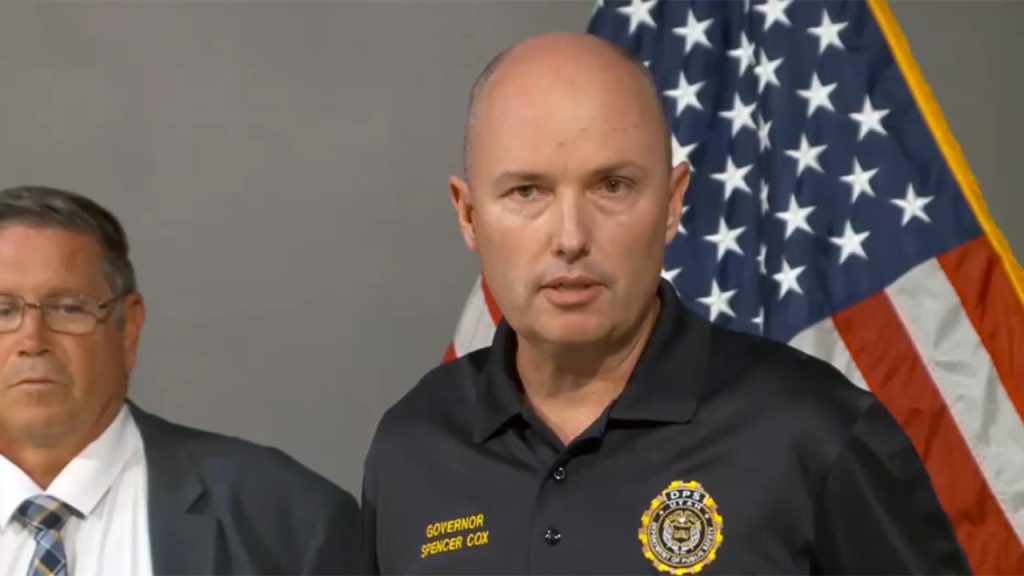The Tragic Loss of Charlie Kirk: A Nation Reflects on Political Violence
In a heartfelt address that captured the nation’s shock and grief, Utah Governor Spencer Cox characterized the fatal shooting of Charlie Kirk as a “political assassination” that undermines the very foundation of American democracy. “This is a dark day for our state. It’s a tragic day for our nation,” Governor Cox stated, emphasizing that the attack violated the fundamental right to life that our Founders enshrined in the nation’s founding documents. Beyond his public persona as the founder of Turning Point USA, Cox reminded Americans that Kirk was “first and foremost a husband and a dad to young children,” whose presence on campus that day stemmed from his unwavering belief “in the power of free speech and debate to shape ideas and to persuade people.” This senseless act of violence cut short the life of a 31-year-old man who had dedicated his career to conservative youth activism and was just beginning what was to be his “American Comeback Tour” at Utah Valley University.
The shooting occurred around 12:10 p.m. MDT when a single shot fired from approximately 200 yards away struck Kirk in the neck. Utah Department of Public Safety Commissioner Beau Mason revealed that the shooter had positioned themselves on a nearby roof, suggesting a premeditated attack. Despite being rushed to the hospital, Kirk was pronounced dead, leaving authorities to launch a widespread manhunt for the assassin. The investigation took an unexpected turn when FBI Director Kash Patel announced that a person who had been taken into custody was released after interrogation, indicating that the search for the perpetrator continues. Governor Cox delivered a stern message to whoever committed this heinous act: “We will find you. We will try you and we will hold you accountable to the furthest extent of the law.” The governor pointedly added, “And I just want to remind people that we still have the death penalty here in the state of Utah,” underscoring the severity with which the state views this assassination.
This tragedy represents more than just the loss of a prominent conservative figure; it stands as another alarming example of political violence in America. Governor Cox contextualized Kirk’s assassination within a disturbing pattern, noting “political assassinations recently in Minnesota,” an “attempted assassination on the governor of Pennsylvania,” and the “attempted assassination on a presidential candidate and former President of the United States.” These incidents collectively paint a troubling picture of a nation where political differences increasingly manifest as violent attacks on public figures. The governor’s words reflect a deep concern about the state of American democracy, where disagreement has evolved from debate to deadly violence. Kirk’s killing serves as a sobering reminder of how political polarization has escalated beyond rhetoric to become life-threatening for those in public life.
The response to Kirk’s death has been marked by bipartisan condemnation of political violence, suggesting that despite deep ideological divisions, Americans across the political spectrum recognize the danger that such acts pose to democratic institutions. Kirk’s assassination strikes at the heart of democratic principles—the ability to express views freely without fear of violent reprisal. At just 31 years old, Kirk had built Turning Point USA into a significant force for conservative youth activism on college campuses nationwide. His death not only leaves a void in conservative political circles but also raises questions about the safety of political figures and the increasing risks associated with public advocacy in today’s charged political environment.
Governor Cox, himself a 50-year-old Utah native who recently secured his second term after facing a challenge from the hard-right wing of his party, delivered his statement with visible emotion. Despite his own political journey, including a relatively recent endorsement of former President Donald Trump after previously criticizing Trump’s role in the January 6 Capitol riot, Cox set aside partisan considerations to address the human tragedy at hand. His message transcended politics to focus on the shared values that should unite Americans regardless of ideology—respect for human life and the peaceful exchange of ideas. The governor’s candid acknowledgment that “nothing I say can unite us as a country” and “nothing I can say right now can fix what is broken” reflects the deep divisions that persist in American society, divisions that make healing from such violence all the more challenging.
As the investigation continues and the nation processes this tragedy, Governor Cox’s closing words resonate with the collective grief felt across the country: “Our hearts are broken. We mourn with his wife, his children, his family, his friends. We mourn as a nation.” This sentiment captures the human dimension of political violence—beyond the headlines and ideological battles, a family has lost a husband and father, and a community has lost a passionate advocate. Kirk’s assassination serves as a somber reminder of what’s at stake when political discourse devolves into dehumanization and violence. As Americans reflect on this tragedy, the challenge remains to find a path forward that honors democratic principles while rejecting the violence that threatens to undermine them. The legacy of Charlie Kirk now becomes intertwined not only with his political advocacy but also with broader questions about how Americans can engage in passionate disagreement without losing sight of their shared humanity and the democratic values that should bind them together even in times of profound division.


